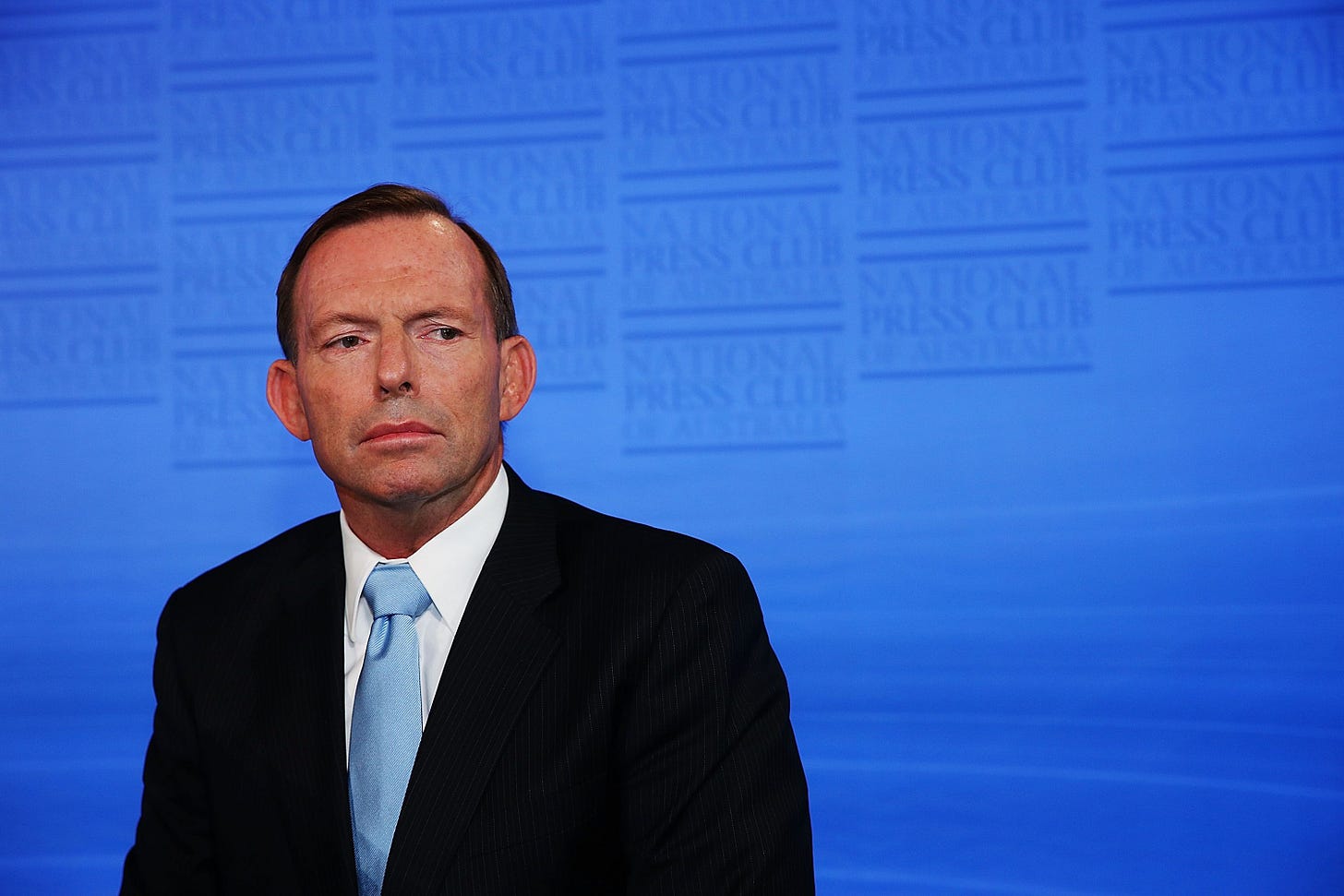From 2013 to 2015, Tony Abbott served as Australia’s 28th Prime Minister. Before his tenure as PM, he held various ministerial roles, including Minister for Health and Leader of the Opposition. A Rhodes Scholar, he had a background in journalism and worked as a political adviser before entering Parliament in 1994. Since leaving politics, Abbott has remained active in public life, engaging in policy discussions, advising the UK Board of Trade, and advocating for conservative and economic policies. He is also involved in charitable work and public speaking engagements.
Why did we invite him on?
As former PM of a major Western nation, Tony has expertise in geopolitics beyond what most of us can boast. As we enter a new epoch in Western politics, we find ourselves confronting the same questions with a new lens. Under Trump, what happens to China? What’s to be done in Ukraine? What about the West itself?
Last time we had Tony on, we discussed how Australia managed to stop illegal immigration. We knew he would be unflinching in the face of grave subject matter, and we were fascinated to discover what he had to say about the world we find ourselves in today.
What did we talk about?
”This is a more fraught and dangerous world than any time of my life, but I’m very encouraged by the second coming of Donald Trump.”
Tony Abbott may not always agree with Donald Trump, but he resonates with what America’s 47th President believes “at heart”. In Tony’s mind, Trump stands against “the politics of climate and identity”, and represents the belief that America is a fundamentally good society, rather than a broken, shameful one in desperate need of flagellation and moral reincarnation. This, Tony argues, should give patriots hope.
This isn’t the first “fight-back” against wokeism, but it might be the most decisive. Brexit threw shadows on the wall, indicating that the press and the public were no longer in agreement, but instead at loggerheads. Trump’s first victory later that year demonstrated that America had grown tired of establishment pundits and found themselves craving an alternative, even if he lacked nearly all the qualities that ordinarily typified “Presidential material".”
To Tony, this “fight-back” doesn’t come from a place of cynicism and bitterness - there’s no talk of revenge. A demoralised West is a weak West, and a weak West allows immoral, authoritarian global governments to assume control.
But why does Tony think the world is so “more fraught and dangerous”?
To some, China seems like a distant problem. That’s not true for Australians, who are profoundly worried that a Chinese invasion of Taiwan is inevitable. Tony shares their concerns, echoing that some kind of fracas in the next few years is “inevitable.” The only hope, he argues, is if China believes they are not facing the comparably measly enemy of Taiwan, but a united, committed Western response.
Here, Konstantin raises a concern: there seems to be a disconnect here. On one hand, Trump’s victory offers hope. On the other, he campaigned on the promise of “no more foreign wars.”




